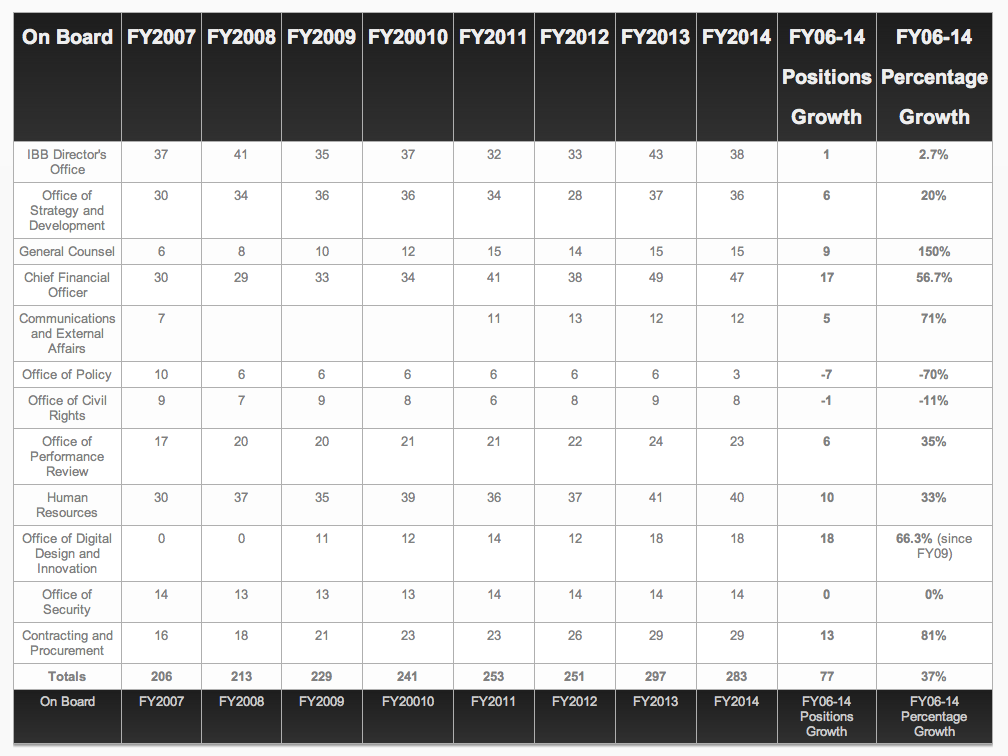BBG Watch Commentary
As International Broadcasting Bureau (IBB) executives eliminated language services and U.S. international broadcasting programming positions in recent years, they kept adding new jobs within the ranks of their own IBB bureaucracy. Some of these jobs went to a few former programming-side employees who otherwise might have been RIFed, but many of these newly created jobs were new hires for IBB, including some highly-paid hires.
The chart showing the expansion of IBB staff position does not reflect equally tremendous growth of IBB contracts and contract employees.
While the IBB executive staff reduced programs and programming positions and proposed more reductions, their top leaders also gave themselves year after year large outstanding performance bonuses as rank and file employees were receiving no raises and worked in constant fear of their jobs being cut. This year, members of the Broadcasting Board of Governors finally put a stop to executive bonuses at IBB, but the IBB culture of intimidation of employees and record low employee morale continues.
IBB executives have for years been rated in the Office of Personnel Management (OPM) Federal Employee Viewpoint Survey (FEVS) as being some of the worst managers in the federal government
What we still have is a large and growing number of highly-paid bureaucrats who keep expanding their bureaucratic domain at the expense of working journalists and other rank and file employees and at the expense of much needed U.S. international media outreach.
The new BBG Board ought to take a close look at the top management of the International Broadcasting Bureau is destroying core programming operations of the agency while expanding its own bureaucracy and perpetuating its destructive management culture.
